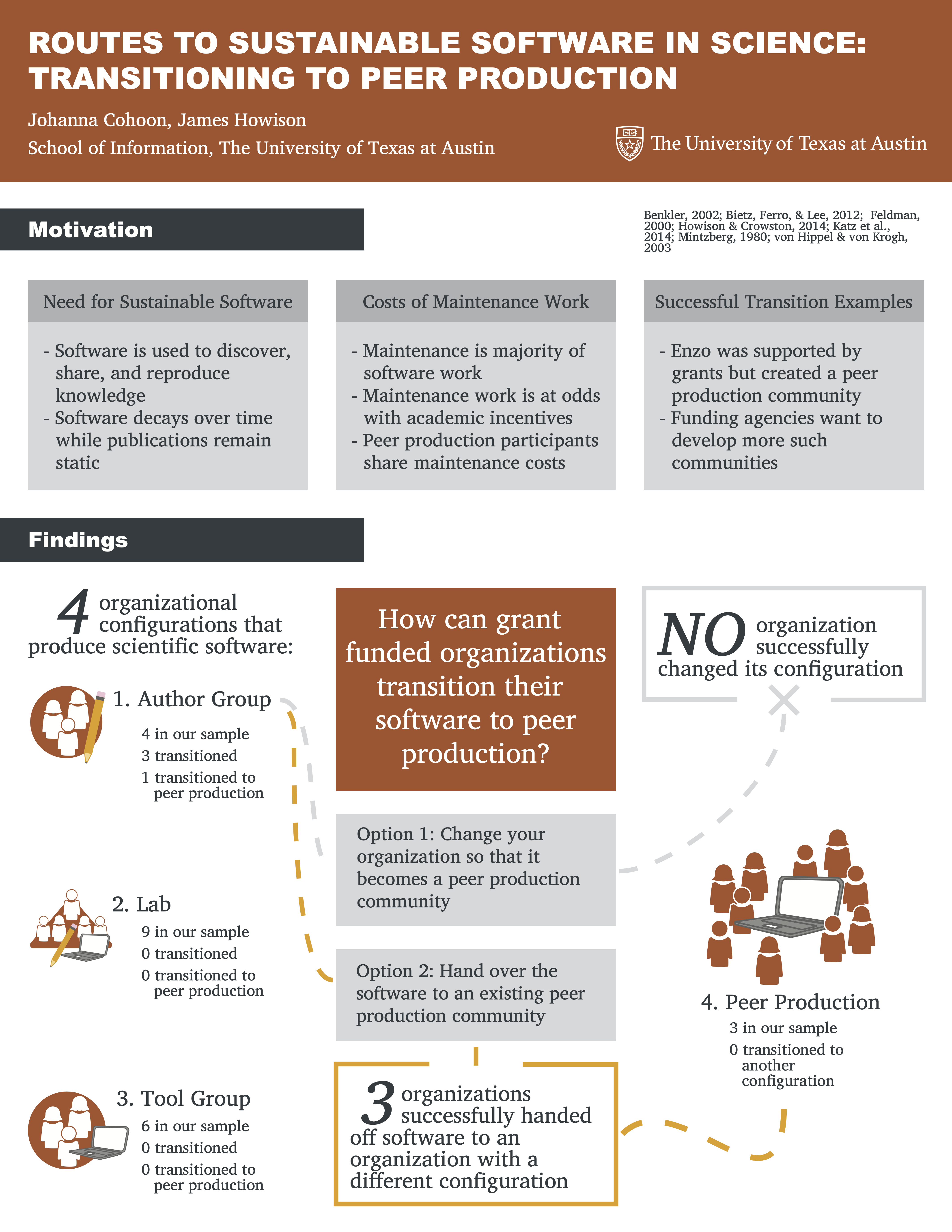


The Project:
My doctoral advisor, James Howison, and I collaborated to study how grant funded scientific software work can transition to new models of sustainability. Useful software projects are continuously evolving artifacts that must stay up to date with the packages and libraries that they depend on, but grant funding is bounded and time-sensitive.
In order to understand how scientific software might escape the limitations of grant funding and make themselves sustainable for the long term, we conducted a qualitative analysis of >100 software projects. These projects, funded through NSF's SI2 program, specifically planned to address sustainability with their awards. Structuring our data using RDF, we collected data from the projects' current and archived websites. In addition, we conducted interviews with project members. Leveraging research on genre theory, innovation, organizational management, and FLOSS, we developed typologies for 1) the different kinds of organizations that have maintenance responsibilities for the software projects (e.g. labs) and 2) the modes of change their software undergoes as they strive for sustainability.
Using these insights, we can improve science policy and funding programs by recognizing the specific challenges faced and tactics used to create sustainable scientific resources. For example, unlike open source peer production, labs might only admit new members through an application process, but a steady pipeline from student to scholar can ensure long-term sustainablity without the community efforts needed for peer production.
Data collection has concluded and we have presented initial findings, focusing on connecting with the audience we studied—scientific software developers.
My Role:
While working on this project, I collected the qualitative data and, with Dr. Howison, refined our coding scheme and RDF data structure. I validated the the results of this content analysis using SHACL and developed a truth table to explore configurations most likely to lead to peer production. As we focused our efforts on collecting interview data, I developed and revised our interview protocol and have planned and led interviews. I have presented some of our early results at the Collegeville Workshop on Sustainable Scientific Software, PASC22, and at the Academy of Management. I have especially enjoyed discussing our findings with software developers. A full publication is forthcoming.